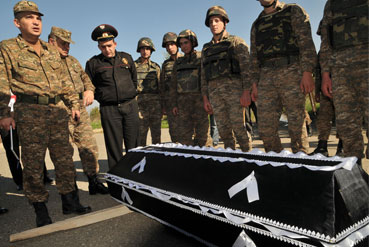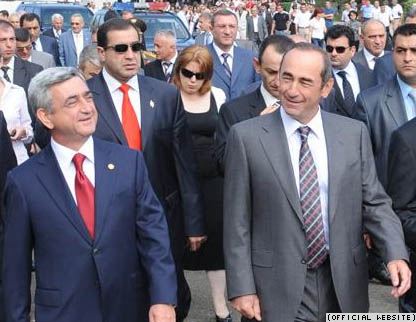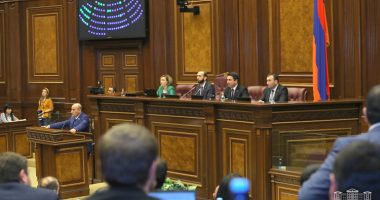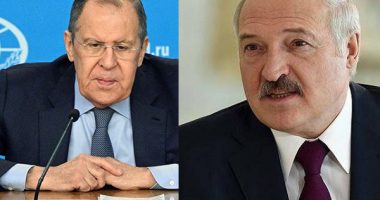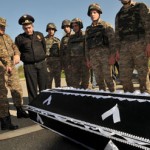

There has been significant deterioration over the past year. Neither government is planning an all-out offensive in the near term, but skirmishes that already kill 30 people a year could easily spiral out of control. It is unclear if the leaders in Yerevan and Baku thoroughly calculate the potential consequences of a new round of tit-for-tat attacks. Ambiguity and lack of transparency about operations along the line of contact, arms deals and other military expenditures and even the state of the peace talks all contribute to a precarious situation.
Monitoring mechanisms should be strengthened and confidence-building steps implemented to decrease the chance of an accidental war.
At the same time, more has to be done to change a status quo that is deeply damaging to Azerbaijan; 586,000 Azeris are internally displaced (IDPs) from Nagorno-Karabakh and adjacent areas, and some 16 per cent of the country’s territory is occupied. Otherwise, Azerbaijan public opinion and leadership will feel justified to use the military assets Baku has been accumulating at an increased rate: the already substantial defence budget is slated to rise by some 45 per cent between 2010 and 2011, to $3.1 billion out of a total $15.9 billion state budget.
Weapons purchases, belligerent rhetoric and offensive posturing along the front lines may be tactics to pressure Yerevan into concessions at the negotiating table, but they also could be signs of preparation to use force before the country’s oil revenues are projected to decline after 2014. Similarly, Armenia and Nagorno-Karabakh – aware of this time line and the risk of a nationalist gamble – may be tempted to try a pre-emptive strike. Azerbaijan’s armed forces are estimated at nearly 95,000, Armenia’s and Nagorno-Karabakh’s at around 70,000. The two sides’ arsenals are increasingly deadly, sophisticated and capable of sustaining a protracted war. Both can hit large population centres, critical infrastructure and communications.
Conflict prevention would be best ensured by signature of the basic principles agreement, first outlined by the Organisation for Security and Cooperation in Europe (OSCE) in 2005 and discussed since then between Presidents Sargsyan (Armenia) and Aliyev (Azerbaijan), with the help of the U.S., Russia and France OSCE Minsk Group co-chairs. At the OSCE Summit in Astana in December 2010, the two presidents reaffirmed their commitment to find a final settlement based on international law, including six points that have generally been accepted as part of the basic principles, but they did not sign the long-awaited agreement. Further deterioration in the security environment is likely to make agreement on the basic principles more difficult.
2010 saw little progress in the Minsk Group-mediated talks. Both capitals argue they have offered the maximum concessions. President Aliyev publicly stated that he largely accepted the basic principles as elaborated in February 2010, while President Sargsyan remained noncommittal. The Azerbaijani leadership has begun to warn that diplomacy has been in vain and threaten that it may withdraw from negotiations if Yerevan continues “simulating talks”.
President Sargsyan has little domestic room for manoeuvre. Most Armenians feel the risks of changing the status quo outweigh the benefits. They say they would have to withdraw without a real guarantee of security, in return for a vaguely-defined “interim status” for Nagorno-Karabakh that would include a promise of a vote on final status but no indication of when it would occur and whether it could lead to independence. Armenians initially called the seven districts they occupy around Nagorno-Karabakh a “security zone”, but a growing number now regularly refer to them as the “liberated territories” or “historic Armenian lands” that should never be returned to Azerbaijan.
Azerbaijanis insist that any peace settlement must preserve their country’s territorial integrity and guarantee IDPs the right of return, including to Nagorno-Karabakh, while Armenians seek the right to full self-determination for the (Armenian) population of Nagorno-Karabakh, including the possibility of independence.
To reduce the dangers of a new war and improve the environment for conflict resolution:
Armenia and Azerbaijan should formally endorse the basic principles, promote more pragmatic public discussion on the value of such an agreement, reduce belligerent rhetoric and not demand at this stage that a fixed timeframe be set or a specific outcome be pre-ordained or excluded in a referendum to determine Nagorno-Karabakh’s final status.
The parties should undertake confidence-building measures along the front lines, including withdrawal of snipers from the line of contact (in accordance with OSCE recommendations), suspension of large-scale military exercises near the line of contact, the pullback and cessation of use of any artillery and a halt to trench advancements towards each other’s positions. Armenia should stop sending regular army conscripts to serve in Nagorno-Karabakh.
Armenia and the de facto Nagorno-Karabakh authorities should cease supporting activities that make the status quo more intolerable for Azerbaijan and thus use of force seem a more attractive option for its leaders and public, such as settling Armenians in occupied Azerbaijani territories, renaming previously Azerbaijani majority towns and undertaking unilateral archaeological excavations.
Both Armenia and Azerbaijan should accede to the Rome Statute of the International Criminal Court.
The international community should step up its efforts to discourage the dangerous arms race in the region. In particular Russia, as an OSCE Minsk Group co-chair, but also others, should uphold the non-binding UN and OSCE arms embargoes on Armenia and Azerbaijan.
The OSCE, with full support of the Minsk co-chair countries, should encourage the parties to broaden its observer mission’s mandate to authorise investigation of claimed violations and spontaneous monitoring, including with remote surveillance capabilities, and to agree to a significant increase in the number of monitors, as an interim measure until a peacekeeping force is deployed as part of the implementation of a peace agreement.
A subsequent briefing will examine new approaches for advancing the negotiations and implementing any deal and provide recommendations on additional steps external parties could take in support of peace.
Tbilisi/Baku/Yerevan/Istanbul/Brussels, 8 February 2011.
The whole report is presented on the official web-site of the International Crisis Group.
Open Letter on the Proposal to Rename the Armenia-Turkey Border Crossing After Talat Pasha
We express our deep concern and disappointment regarding the recent proposal introduced…
- MassisPost
- July 3, 2025
- No comments
- 2 minute read
Pashinyan’s Visit to Turkey and Beyond
By KRIKOR KHODANIAN At the invitation of Turkish President Recep Tayyip Erdoğan,…
- MassisPost
- June 29, 2025
- No comments
- 3 minute read
“I Still Can’t Believe What Happened on June 20”
By LUSYEN KOPA Exactly three months ago, I wrote an article titled…
- MassisPost
- June 26, 2025
- No comments
- 4 minute read
Anniversary of the Immortality of the Twenty Hnchakian Heroes
By KRIKOR KHODANIAN 110 years ago these days, the prominent figures of…
- MassisPost
- June 15, 2025
- No comments
- 3 minute read

